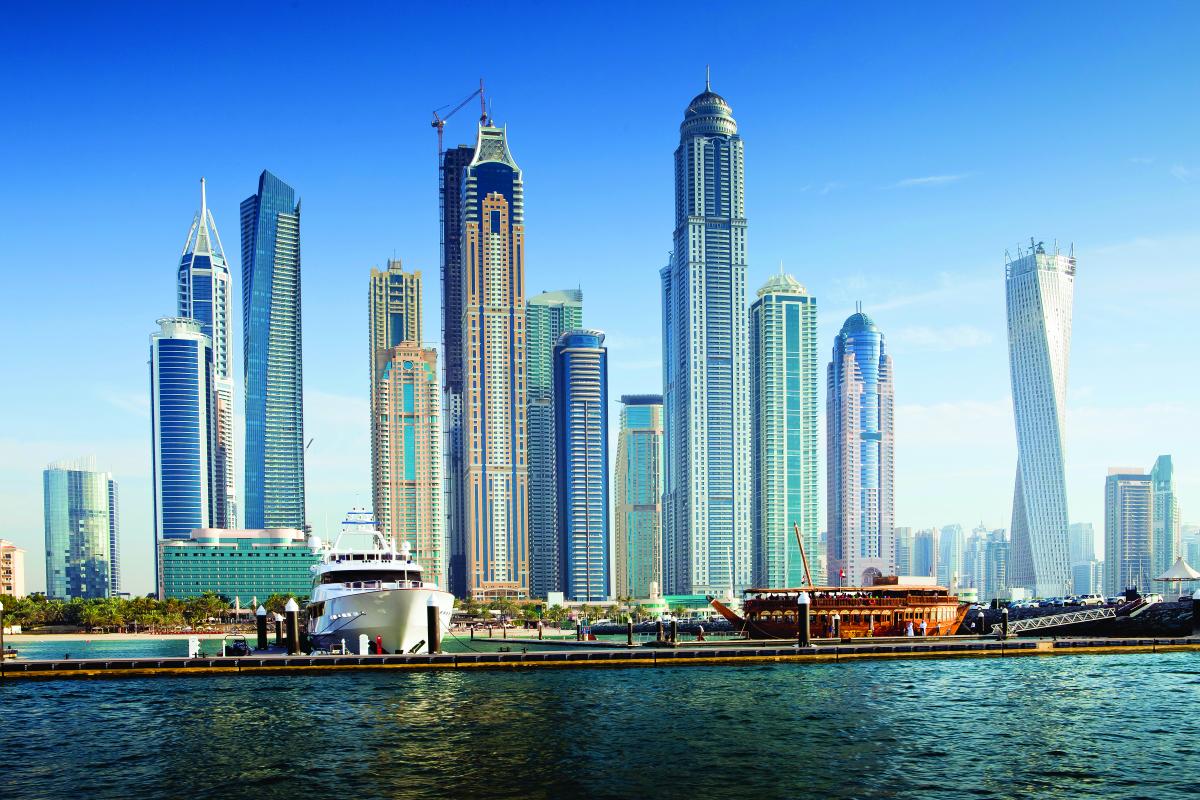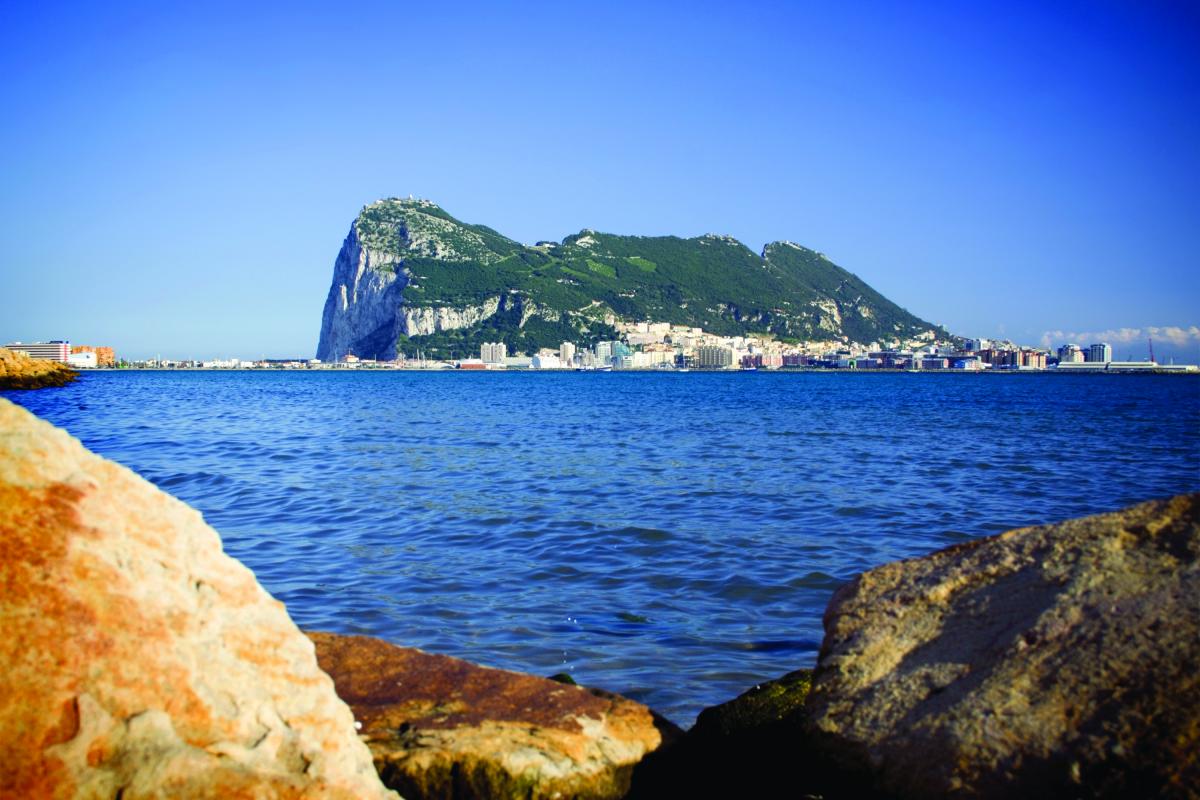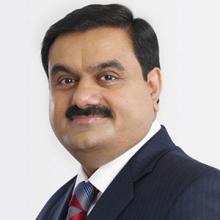Going global: Top 15 destinations for family offices

Family offices are increasingly seen as a great prize for international financial centres. They place little burden on regulatory resources, are asset rich and provide a potentially rich vein of work for local financial institutions, professionals and service providers. Like salmon in a river, family offices also provide a litmus test for the general health of a jurisdiction's eco-system. It is not just jurisdiction's tax regimes, but their political stability, international compliance, the quality of their legislation and human resources, the efficacy of their legal systems as well as their accessibility and connectivity that can make them attractive destinations.
The criteria for establishing a family office will depend on the individual circumstances of each family: where family members wish to live and work; where their wealth is sourced; and where their current business or investment strategy is focused. These will also be subject to change on a generational basis as family businesses may be sold, expanded or migrated, or as family ties to their original base are loosened and families increasingly span several continents.
Where a single location is no longer sufficient, families may need to select jurisdictions based on a variety of other criteria. They may prefer to place the general office and administration in one location, while the investment function resides in one of the world's major financial centres like London, New York, Tokyo, Zurich, Frankfurt or Sydney.
This explains why Switzerland, Luxembourg and the UK – together with well-established offshore centres like the Channel Islands, Monaco or Hong Kong – have long hosted the offices of wealthy foreign families. Other jurisdictions offer specialties that may be compelling to certain family offices – hedge funds in the Cayman Islands or risk management in Bermuda. Not surprisingly given global economic trends, the competition is fiercest from Asia and the Middle East, where new wealth is being generated and where much greater levels of foreign investment are now targeted. Family offices may feel the need to be close to the action and Singapore, Hong Kong and Dubai are the most likely beneficiaries.
Purpose trusts, private trust companies, family partnerships, limited liability partnerships and protected cell companies generally provide the building blocks for family holding structures, but competition among jurisdictions is intensifying. As a result many are expanding or upgrading their legislative arsenal to cater specifically to high net worth families and this is currently one of the most innovative areas of offshore legislation.
Hong Kong has just followed Singapore by modernising its trusts laws, while Guernsey, Jersey and the Isle of Man have all introduced foundations to broaden the fiduciary options to civil law jurisdictions. Virgin Islands Special Trusts Act (Vista)trusts in the British Virgin Islands and Special Trusts (Alternative Regime) (Star) Trusts in Caymanboth serve to optimise the management capabilities in respect of trusts, while the Bahamas Executive Entity (Bee) was introduced specifically to control and protect decision-making at the top level of a structure. It is also interesting to note that Luxembourg and Qatar have followed Dubai by introducing a specific regulatory framework for family office activities.
Finally there are a number of international developments in transparency and exchange of information that family offices and their offshore providers or partners need to be aware of. These include: the United States' Foreign Account Tax Compliance Act (Fatca), the European Union's revised Savings Tax Directive, the amended Convention on Mutual Administrative Assistance in Tax Matters and the Organisation for Economic Co-operation and Development's (OECD's) latest initiatives on a new single global standard for automatic exchange of information (AEOI), beneficial ownership and base erosion and profit shifting (BEPS). Jurisdictions that fail to achieve full compliance with these programmes may find themselves unable either to attract or retain family offices due to the difficulties it will create for clients.
BERMUDA
Status: British Overseas territory
AEOI: US (FACTA IGA Model 2), UKIGA (Non-reciprocal), CMAATM (by exetention from UK)
OECD Global Forum Rating 2013: Largely compliant

The British overseas territory, situated around 600 miles off the coast of the eastern US seaboard, is the world's largest offshore insurance market. Its English legal system, well established financial services sector and internationally recognised stock exchange has led to Bermuda becoming the host for activities arising out of the reinsurance, funds and capital markets.
Risk management is a significant part of the wealth management equation for families with substantial assets and, with the convergence of reinsurance and capital markets, exposure to catastrophe risk as an asset class is also increasingly gaining investor acceptance.
Bermuda offers some additional planning vehicles and opportunities. For example, the purpose trust and private trust companies (PTCs) have been used by many high net worth individuals as part of their family office structures and to achieve their philanthropic objectives.
In 2009, the Bermuda government abolished the rule against perpetuities, which limited the duration of trusts to 100 years, to make itself more attractive to family offices and high net worth individuals seeking to establish trusts. The PTC structure enables family members or trusted advisers to be involved in the decision making process and integrates easily with a family office, an operating company or even a private philanthropic trust.
BRITISH VIRGIN ISLANDS
Status: British Overseas territory
AEOI: US (FATCA IGA Model 1), UK IGA (Non-reciprocal), CMAATM (by extension from UK)
OECD Global Forum Rating 2013: Non-compliant
 The British Virgin Islands (BVI) is the world's largest corporate domicile with more than 800,000 companies incorporated since 1984 and the second largest offshore jurisdiction for hedge fund formation.
The British Virgin Islands (BVI) is the world's largest corporate domicile with more than 800,000 companies incorporated since 1984 and the second largest offshore jurisdiction for hedge fund formation.
The BVI's appeal as an attractive centre for family offices arises from its creation of modern, flexible laws together with a stable political and economic platform, supported by a legal system founded on English common law.
The British Virgin Islands made significant changes to its private trust company regime in 2007. A PTC is now exempt from regulation and licensing provided it carries on only either “unremunerated trust business” or “related trust business”. The Virgin Islands Special Trusts Act(Vista) regime allows trusts to be created to hold shares in a British Virgin Islands business company. The trustee can be disengaged from management responsibility allowing the company's business to be run – and the shares retained – as long as the directors of that company see fit.
Purpose trusts are also permitted under British Virgin Islands law while the private funds regime, which may have no more than 50 investorsor must be offered on a private basis only, is ideal for family offices and other smaller fund structures.
CAYMAN ISLANDS
Status: British Overseas territory
AEOI: US (FATCA IGA Model 1), UK IGA (Non-reciprocal), CMAATM (by extension from UK)
OECD Global Forum Rating 2013: Largely compliant
 Since the introduction of the Mutual Funds Law in 1993, which has been copied by jurisdictions around the world, the Cayman Islands has grown to be the world's leading offshore hedge fund jurisdiction. This ensures that it has plenty of expertise in this area – so family offices with a hedge fund bent have often had links with the islands, and no doubt will continue to do so.
Since the introduction of the Mutual Funds Law in 1993, which has been copied by jurisdictions around the world, the Cayman Islands has grown to be the world's leading offshore hedge fund jurisdiction. This ensures that it has plenty of expertise in this area – so family offices with a hedge fund bent have often had links with the islands, and no doubt will continue to do so.
The biggest sectors are banking, hedge fund formation and investment, structured finance and securitisation, captive insurance, and general corporate activities. Regulation and supervision of the financial services industry is the responsibility of the Cayman Islands Monetary Authority (Cima).
Since the Cayman Islands first introduced Star trusts with the enactment of the Special Trusts (Alternative Regime) Law 1997, their use has increased and they have become a popular vehicle for use in commercial applications as well as for family wealth planning. Star trusts are also a popular vehicle for holding shares in private trust companies. When used for estate planning purposes, the most popular features of a Star trust are the ability to restrict the beneficiaries' rights and the possibility for the trust to continue forever.
DUBAI
Status: Emirate in the United Arab Emirates (UAE)
AEOI: US (FACTA IGA Model 1) (UAE)
OECD Global Forum Rating 2013: Unrated (UAE)
 The Dubai International Financial Centre (DIFC) established a legal and regulatory framework for family offices working in the centre in 2008 to provide comprehensive infrastructure solutions for families and family businesses operating in the Middle East. Family offices are growing in popularity in the Middle East due to the large number of businesses that are family owned. Estimates on the number of family offices in the region range from 60-75.
The Dubai International Financial Centre (DIFC) established a legal and regulatory framework for family offices working in the centre in 2008 to provide comprehensive infrastructure solutions for families and family businesses operating in the Middle East. Family offices are growing in popularity in the Middle East due to the large number of businesses that are family owned. Estimates on the number of family offices in the region range from 60-75.
The legislation, Single Family Office Regulations, specifically address the needs of family-run institutions and govern the registration procedure and documentary requirements for a single family office. The regulations offer distinct benefits to single family offices by excluding them from many of the regulatory restraints placed on conventional financial institutions established in the DIFC on the basis that single family offices have no direct public liability.
A single family office may be incorporated or established in the DIFC as a body corporate or a partnership for the purpose of providing services to a single family. It must comprise either one individual or a group of individuals who are the bloodline descendants of a common ancestor and must own a minimum of $10 million in investable or liquid assets.
GIBRALTAR
Status: British Overseas Territory
AEOI: US (FATCA IGA Model 1), UKIGA (Reciprocal), CMAATM (by extension from UK)
OECD Global Forum Rating 2013: Largely complaint
 Gibraltar is a self-governing and self-financing parliamentary democracy within the European Union (EU) and is putting its mark down appealing to family offices. Its EU membership provides passporting rights in banking, investment services, insurance, insurance mediation and reinsurance across all 30 EU and European Economic Area (EEA) countries and access to a market of 500 million people.
Gibraltar is a self-governing and self-financing parliamentary democracy within the European Union (EU) and is putting its mark down appealing to family offices. Its EU membership provides passporting rights in banking, investment services, insurance, insurance mediation and reinsurance across all 30 EU and European Economic Area (EEA) countries and access to a market of 500 million people.
Gibraltar is active in the private client market and has plenty of services for high net worth (HNW) individuals in terms of lifestyle and tax management. Firms in Gibraltar are able to offer a wide variety of tailored solutions catering for complex personal requirements. Included in these is a tax residence programme for HNW individuals and a reduced income tax charge for high earning professionals possessing specialist skills who relocate to Gibraltar.
Individuals who may wish to manage their affairs by way of a transparent and compliant trust or company arrangement have a wide choice. Service providers have reported a considerable increase in the number of family offices being established in Gibraltar, both in the form of independent units with their own physical presence and those accommodated within existing licensed fiduciaries. Gibraltar provides other benefits including no capital gains tax and no inheritance tax.
GUERNSEY
Status: British Crown Dependency
AEOI: US (FACTA IGA Model 1), UKIGA (Reciprocal), CMAATM (by extention from UK)
OECD Global Forum Rating 2013: Largely compliant
 The depth and breadth of Guernsey's finance sector means it is well placed to provide high quality and wide ranging family office services. International banks with operations in the Island are able to provide many of the spokes to this wheel, offering strong fiduciary services for the administration of Private Trust Companies (PTCs), family trusts and corporate vehicles.
The depth and breadth of Guernsey's finance sector means it is well placed to provide high quality and wide ranging family office services. International banks with operations in the Island are able to provide many of the spokes to this wheel, offering strong fiduciary services for the administration of Private Trust Companies (PTCs), family trusts and corporate vehicles.
Since pioneering the Protected Cell Company (PCC), Guernsey has seen this structure develop in more recent years into a key corporate vehicle used by many single and multi family offices. Originally family offices were assisted in offering their investment activities to family members and other associated friends through the cell structure of a regulated fund PCC. This has been further extended with the updating of the legislation to allow private “non-fund” PCCs. These can be used as investment holding vehicles for the family with no restrictions on asset class, flexible distribution policies for cells for each family member and the ability to segregate assets particularly for risk management. The recent introduction of the Guernsey Foundation has attracted further interest from those families seeking a civil law alternative to the trust.
HONG KONG
Status: Special Administrative Region of the People's Republic of China
AEOI: US (FACTA IGA Model 2)
OECD Global Forum Rating 2013: Largely compliant (China)
 Backed by its Western legal system and a strong regulatory framework, Hong Kong is one of the top locations for private clients and for businesses to establish their Asian headquarters. Like most family office locations, Hong Kong has relatively low taxes and is very attractive to wealthy families, wealth managers and high net worth individuals.
Backed by its Western legal system and a strong regulatory framework, Hong Kong is one of the top locations for private clients and for businesses to establish their Asian headquarters. Like most family office locations, Hong Kong has relatively low taxes and is very attractive to wealthy families, wealth managers and high net worth individuals.
Wealth creation in the region is still very much tied up with the family business and family offices have yet to capture the imagination of the region's wealthiest families as they have done in Europe and North America. But the overriding importance of the family business in wealth creation is expected to moderate with generational shifts taking place in the region. As these businesses move from first-generation control to second, this will see more family offices being created and the greater professionalisation of current ones.
Hong Kong's much anticipated Trust Law (Amendment) Ordinance 2013came into force on 1 December 2013, as Hong Kong trust law was considered to be outdated compared to modern trust laws in comparable jurisdictions. The amendments will enhance Hong Kong's status as an international asset management centre.
ISLE OF MAN
Status: British Crown Dependency
AEOI: US (FATCA IGA Model 1), UK IGA (Reciprocal), CMAATM (by extension from UK)
OECD Global Forum Rating 2013: Compliant
 The Isle of Man's location, political stability, legal framework and tax neutrality, combined with a “white-list” regulatory regime and professional service infrastructure make it an attractive option for family offices. While the island continues to attract ultra-high net worth individuals to reside, this is not a prerequisite for establishing a family office on the island.
The Isle of Man's location, political stability, legal framework and tax neutrality, combined with a “white-list” regulatory regime and professional service infrastructure make it an attractive option for family offices. While the island continues to attract ultra-high net worth individuals to reside, this is not a prerequisite for establishing a family office on the island.
The Isle of Man has a zero percent tax rate for companies and no capital gains tax, inheritance tax or stamp duty.It has a full suite of fund options. In particular, the exempt scheme is a fully flexible vehicle that is wholly outside the scope of fund regulation in the Isle of Man and is suitable for family offices looking to structure their assets in a zero corporation tax, European financial centre as well as for all types of private funds. Luxury asset management is catered for through leading aircraft and yacht registries.
In 2009, the Isle of Man was the first non-EU jurisdiction to commit to the EU Savings Tax Directive and in 2013 was the first country, other than the US, to sign a Fatca-style agreement with the UK.Last year the OECD Global Forum awarded the island its top “compliant” rating – one of only 18 countries worldwide.
JERSEY
Status: British Crown Dependency
AEOI: US (FATCA IGA Model 1), UKIGA (Reciprocal), CMAATM (by extention from UK)
OECD Global Forum Rating 2013: Largely compliant
Jersey offers a robust, modern and sophisticated legal framework that has enabled it to lead the way in delivering private client services. These range from simple trusts and underlying company structures for UK families, to high value and more complex structures involving trusts, companies, limited partnerships and foundations for international families.
The Trusts (Jersey) Law 1984was the basis for the Hague Convention on trusts and has been used as a model in a number of other jurisdictions. Both charitable and non-charitable purpose trusts are typically formed, which can also cater for objects that may fall outside the strict legal definition of charitable but which are clearly altruistic in nature and intent e.g. ecological, infrastructure or research causes.
An innovative foundations law has led to the growth in the number of Jersey Foundations. The structure is attractive because of its infinite duration, capacity, transparent registration, the flexible composition of a foundation's “council of members” and the safeguard of the “guardian”, ensuring the council of members pursue the foundation's stated objects.
Jersey's mature approach to transparency and confidentiality, including growing networks of tax agreements, and strong established links with emerging markets around the world, such as the Middle East and Asia, is attractive for family office work.
LIECHTENSTEIN
Status: Unitary parliamentary constitutional principality
AEOI: US (FATCA IGA Model 1), CMAATM
OECD Global Forum Rating 2013: Largely compliant
Family offices view Liechtenstein as a safe place to do business. The country enjoys a triple-A rating from Standard & Poor and Liechtenstein's customs and currency agreement with Switzerland means that its financial sector enjoys privileged access to the Swiss economy.
The most commonly used entities in Liechtenstein are trusts, private family foundations, establishments, trust enterprises, companies limited by shares, limited companies and limited partnerships.
The trust and the foundation are generally used as holding vehicles. Trusts were introduced into Liechtenstein in 1926 and are used and accepted worldwide. A new foundation law entered into force in 2009. The foundation, having its own legal personality, is more popular with clients from civil law countries, whereas clients from common law jurisdictions more often choose trusts.
In recent years, the principality has worked to reinvent itself after breaches of client confidentiality threatened to undermine its financial services sector. It has signed a Fatca IGA with the US and is in talks with the EU to implement the revised Savings Tax Directive.
An innovative initiative has been the Liechtenstein Disclosure Facility – an agreement with the UK tax authorities allowing those with undisclosed bank accounts in Liechtenstein to settle liabilities with reduced penalties. A similar agreement was made with Austria.
LUXEMBOURG
Status: Grand Duchy, Unitary state in European Union
AEOI: US (FACTA IGA Model 1), CMAATM
OECD Global Forum Rating 2013: Non-compliant
Located in the heart of Europe, Luxembourg has a growing reputation as a family office hub. It provides legal certainty, tax benefits, the presence of a variety of financial institutions and a mature private banking industry. In Luxembourg, family offices offer a variety of services ranging from non-financial services including data management, accounting, banking and finance, to more personal services including coaching, philanthropy and mediation.
Luxembourg law offers various vehicles to structure the wealth of high net worth individuals. These include the société de participations financiers (Soparfi) and the family private wealth management company (SPF), as well as the specialised investment fund (Sif) or an investment company in risk capital (Sicar).
In 2012 Luxembourg introduced a specific regulatory framework for family office activities under the Family Office Act. This states that family office activities consist in providing, on a professional level, patrimonial-related advice or services to private individuals, families or patrimonial entities founded/owned by or benefiting private individuals or families.
A draft law that was submitted to Luxembourg's parliament in July 2013 is addressing the lack of legislation around foundations. The new orphan tax structure “fondation patrimoniale” has no members, shareholders or associates and is aimed at broadening the range of investment vehicles for high net worth individuals in Luxembourg.
MALTA
Status: Unitary state in European Union
AEOI: US (FATCA IGA Model 1), CMAATM
OECD Global Forum Rating 2013: Largely compliant
Family offices and multi family offices have bolstered Malta as an alternative wealth management centre. A number of family offices have already transferred their operations to Malta, while local service providers are extending their offerings and started to manage the affairs of high net worth individuals and families.
The wide range of investment vehicles ranging from trusts and foundations to investment funds and the combination of these structures provides family planners with the required tools to manage the wealth, business and personal interests of their clients. Asset management companies in Malta have already launched fund platforms exclusively open to family offices and third-party managers to provide them with an efficient and cost-effective solution to enter the market.
Malta's EU-harmonised legislation provides an advantageous operating framework for family offices, including a tax regime that is EU and OECD approved. Its position at the centre of the Mediterranean offers family offices a good strategic location and Malta has introduced a variety of special tax status schemes, which include a global residence programme, retirement scheme, an individual investor programme, as well highly qualified person rules to attract experienced and senior professionals.
MONACO
Status: Principality, Unitary state
AEOI: None as yet
OECD Global Forum Rating 2013: Largely compliant
 Monaco has always been a popular destination for the super rich and has developed a small, but very deep wealth management component with very sophisticated, institutional-like family offices. Some of them allocate all of their funds to third party managers; others manage assets internally. Current figures suggest that around €300-400 billion are being controlled from Monaco, with a substantial demand for hedge funds and alternative investments.
Monaco has always been a popular destination for the super rich and has developed a small, but very deep wealth management component with very sophisticated, institutional-like family offices. Some of them allocate all of their funds to third party managers; others manage assets internally. Current figures suggest that around €300-400 billion are being controlled from Monaco, with a substantial demand for hedge funds and alternative investments.
Monaco is reputed to be the headquarters of at least 50 family offices, making it one of the most important financial centres for family offices anywhere in the world. Features that make Monaco attractive stem not only from the taxation aspects, but also from practical and physical aspects of the location.
The Monaco Association of Family Offices was created under national law 1.355.It works to develop the knowledge and the use of family office services by wealthy families in Monaco, as well as the enhancement of the expertise of the professionals involved in the different branches related to family office activities.
SINGAPORE
Status: Unitary state
AEOI: US (FATCA IGA Model1), CMAATM
OECD Global Forum Rating 2013: Largely compliant
Singapore, a global banking and investment centre in the heart of Southeast Asia, is an attractive base for family offices wishing to benefit from its deep pool of fund management expertise –particularly in the area of Asian investments – the relative ease of setting up businesses and its cost-competitive environment.
With the wealth of the region's 3.3 million high net worth individuals expected to triple to $15.81 trillion by 2015, Singapore is well placed for family offices to grow given the support of the government and build on the 500 family offices across the Asian region. In 2012 Singapore Management University launched the Business Families Institute (BFI) that is positioning itself to build on the ecosystem of advisers serving family offices.
Against the backdrop of Asia's economic growth trajectory and scope for investment portfolio diversification, wealthy people from Europe and the Americas are also looking to Asia for ways to build and preserve their fortunes. The prospects for basing family offices in Asia are particularly alluring at a time when the Western economies are weaker.
SWITZERLAND
Status: Unitary state
AEOI: US (FATCA IGA Model 2), CMAATM
OECD Global Forum Rating 2013: Conditional
 Switzerland's traditional banking secrecy may have been eroded over recent years as international pressure for greater transparency has taken its toll, but the Alpine state is still the gold standard when it comes to services for family offices. Hundreds of family offices are based in Switzerland and, with the huge pool of talent that exists to provide services for the very wealthy, family offices are expected to grow for the foreseeable future.
Switzerland's traditional banking secrecy may have been eroded over recent years as international pressure for greater transparency has taken its toll, but the Alpine state is still the gold standard when it comes to services for family offices. Hundreds of family offices are based in Switzerland and, with the huge pool of talent that exists to provide services for the very wealthy, family offices are expected to grow for the foreseeable future.
A family office in Switzerland can be very tax efficient – no taxes on trusts managed from Switzerland among other advantages – but of course there are lots of other aspects to take into consideration. Switzerland possesses a stable economy, an efficient capital market and a strong currency. Moderate taxation as well as the possibility to negotiate favourable tax rulings with the tax authorities further enhance the attractiveness of Switzerland as a location for wealthy families and their family offices. Switzerland may also be attractive to individual family members looking to relocate.
Asset managers and wealth advisers are not subject to direct prudential supervision by the Swiss Financial Market Supervisory Authority (Finma). Therefore, a family office providing asset management and/or wealth advisory services does not need permission or a Finma registration.






